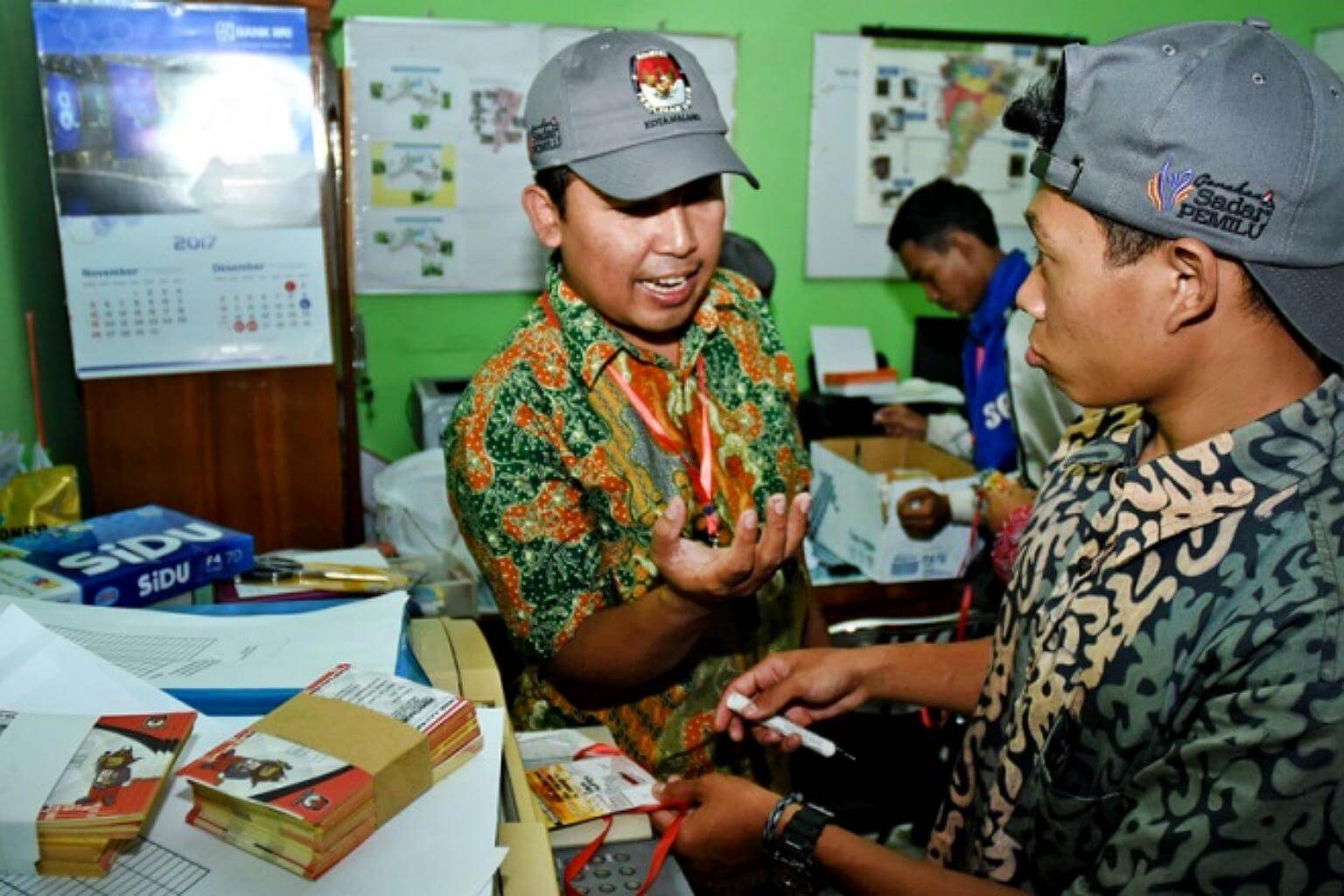Indonesian govt agencies gear up to combat 'money politics' ahead of regional elections
Sign up now: Get insights on Asia's fast-moving developments

Election officials check the distribution of election tools during the 2018 Simultaneous Regional Elections Checking and Verification program at Kasin Village office in Malang, East Java, Indonesia.
PHOTO: THE JAKARTA POST/ASIA NEWS NETWORK
JAKARTA (THE JAKARTA POST/ASIA NEWS NETWORK) - Indonesian authorities are preparing measures to prevent vote-buying and corruption as the 2018 simultaneous regional elections draw near.
These measures will largely be in the hands of the Elections Supervisory Agency (Bawaslu), which is mandated by the 2011 Election Organisers Law to prevent violations and sanction those found guilty of illicit activities such as vote-buying.
Bawaslu commissioner Mochammad Afifuddin has vowed to strengthen the agency's cooperation with several agencies, such as the National Police and the Financial Transaction Reports and Analysis Centre (PPATK), in tackling violations.
"These institutions will work based on their authority in preventing money politics. For example, the PPATK will help us track suspicious bank accounts," Afifuddin told The Jakarta Post on Wednesday (Jan 24).
Bawaslu has also raised the possibility of working with the Corruption Eradication Commission (KPK) in a program that would launch before voting day.
"We have yet to sign any MoUs (memorandum of understanding) as we're still talking about how we can implement those (preventive) measures together. Hopefully, we can reach an agreement before the campaign period in mid-February," Afifuddin said.
The KPK has a limited role in preventing both vote-buying practices and graft during the elections, as it only has the authority to investigate alleged corruption committed by state officials - which may include incumbents using regional budgets for vote-buying. As such, the anti-graft body has vowed to keep their eyes on this year's incumbents.
"With regard to the upcoming elections, we will be looking out for potential graft involving regional budgets, of which the incumbents are in charge," the KPK's deputy for prevention Pahala Nainggolan told the Post, adding that the commission would also examine each candidate's wealth report, as they could show indications of illicit practices.
Each candidate is required to submit his or her wealth report to the General Elections Commission upon registering for the election. As of Wednesday evening, more than 1,120 candidates had submitted their wealth reports to the anti-graft body.
Bawaslu has intensified its preventive measures by revising a regulation last year that would allow it to crack down on vote-buying practices up until voting day. The agency previously had until 60 days before election day to investigate alleged violations.
Concerns over vote-buying reappeared recently when businessman La Nyalla Mattalitti alleged that Gerindra Party chief patron Prabowo Subianto had asked him to pay 40 billion rupiah (S$3.9 million) in return for the party's endorsement for his gubernatorial bid in East Java.
The party has denied the accusation, saying it never asked candidates to pay what is widely known as mahar politik (political dowry). La Nyalla later retracted his claim, but not before Bawaslu launched its investigation into the matter.
"We have summoned him three times for questioning, but he failed to respond each time. We will pass the case on to the (regional elections) law enforcement unit, which has the authority to investigate," Afifuddin said.


